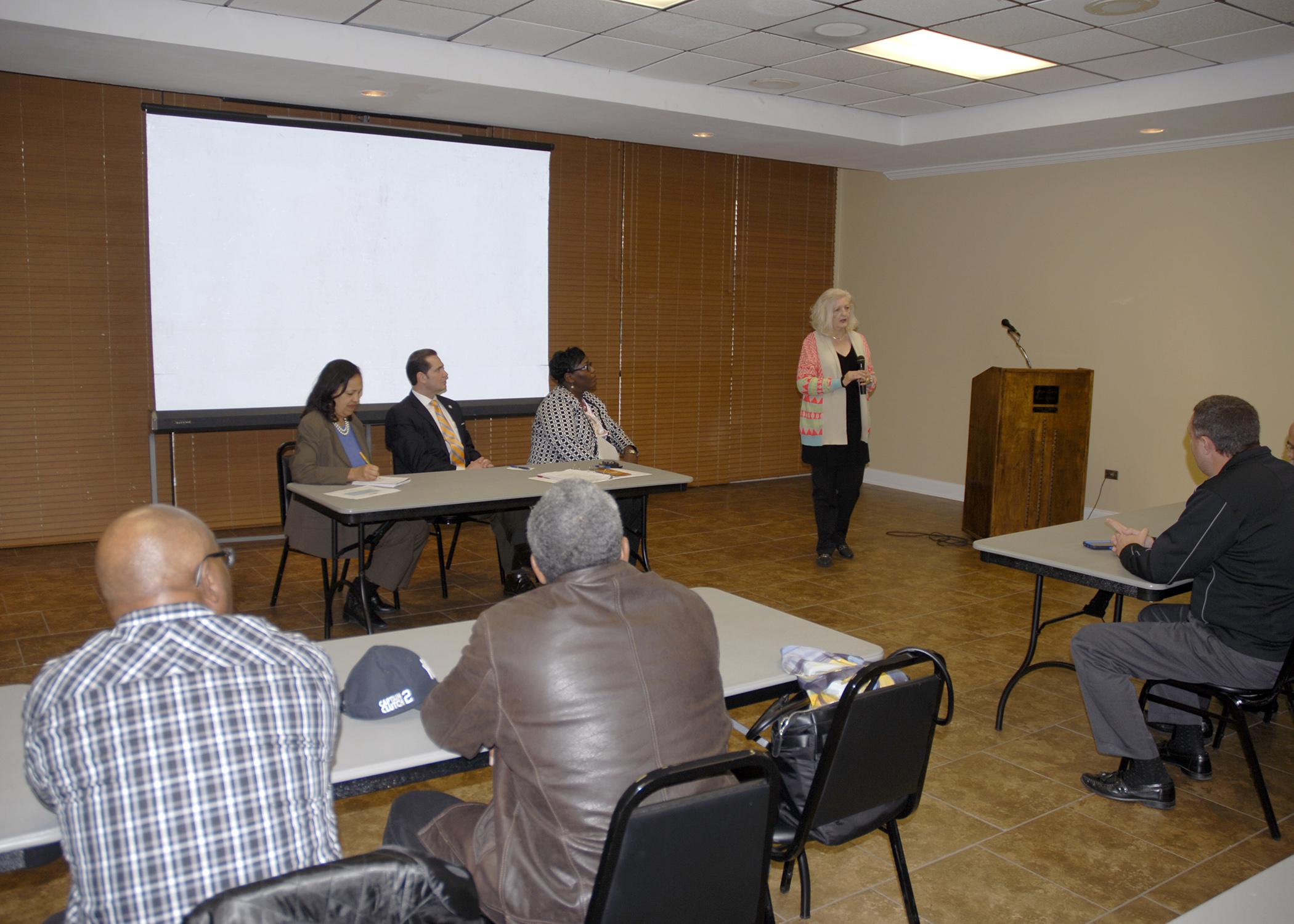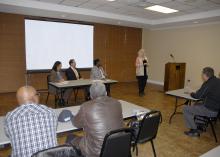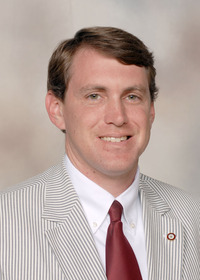Information Possibly Outdated
The information presented on this page was originally released on January 27, 2015. It may not be outdated, but please search our site for more current information. If you plan to quote or reference this information in a publication, please check with the Extension specialist or author before proceeding.
USDA official meets with Mississippi partners
MISSISSIPPI STATE -- Lisa Mensah, the U.S. Department of Agriculture’s new undersecretary for rural development, visited Mississippi Friday, her first trip since being confirmed to the post.
Mensah visited with officials from Mississippi State University and Alcorn State University, as well as stakeholders in central Mississippi and the Delta, to discuss rural development issues.
Mensah stopped in Winona, where she announced that her office was awarding a $600,000 loan to the North Central Planning and Development District through the USDA Intermediary Relending Program. This district was one of five nonprofit groups in the country to receive funding.
Mensah said USDA designed the Intermediary Relending Program to foster small business and entrepreneurship at the ground level in rural areas.
“This program helps the federal government reach more people who are potential candidates for future lending, both from the private and public sectors,” Mensah said. “I believe small businesses are critical. I think entrepreneurs help move this whole economy. One job at a time, 10 jobs at a time is how we move communities forward.
“Sometimes we don’t always value the people who do the hard work of retaining jobs, growing the next line of business and getting to that next new customer and market. If you can hold on to a new customer, that’s holding on to business. It’s fun to lead a program where we can invest in rural businesses in a way that makes sense in the marketplace,” she said.
Mensah also participated in a panel at the LeFlore Civic Center in Greenwood to meet with representatives of nonprofit associations that benefit from partnerships with USDA Rural Development. The groups provide financial, housing, medical and business services to rural and low-income areas.
“When you are a newly appointed undersecretary, you get a lot of words and a lot of numbers,” Mensah said. “I wanted to see people who were using the loan and grant programs in the department. I wanted to see folks who use our housing programs, community facilities programs and energy programs, as well as our partners at the university level.”
Sumner Davis, head of the MSU Extension Service Center for Government and Community Development, said Extension joins the USDA in its commitment to providing economic and community development opportunities. The USDA provides base funding for the MSU Southern Rural Development Center, which works to address rural development issues in the state and throughout the rural South.
“The USDA has had a long-standing history of promoting rural development throughout the country,” Davis said. “They have, through a variety of funding mechanisms, helped local governments, nonprofits, universities and private entrepreneurs.”
Davis said a variety of USDA grants have funded MSU programs in the past, and he anticipates a continuation of that relationship.
“USDA’s emphasis on rural development and promoting economic opportunity in rural America meshes very well with Extension Service Director Gary Jackson’s vision of community development within the MSU Extension Service and helps us do our job throughout the state,” Davis said.
Steve Turner, head of the MSU Department of Agricultural Economics and interim director of the Southern Rural Development Center, said partnering with the USDA Rural Development division facilitates partnerships with other USDA units.
“MSU and USDA have very similar objectives, the most important of which is to improve the lives and welfare of our citizens in Mississippi’s rural and urban areas,” Turner said. “USDA’s Rural Development program is becoming more interested in the kinds of work we do. It makes sense that they’re heavily involved in our state’s activities.”
Before Mensah was confirmed to her current post in December, she was executive director of the Aspen Institute’s Initiative on Financial Security.




